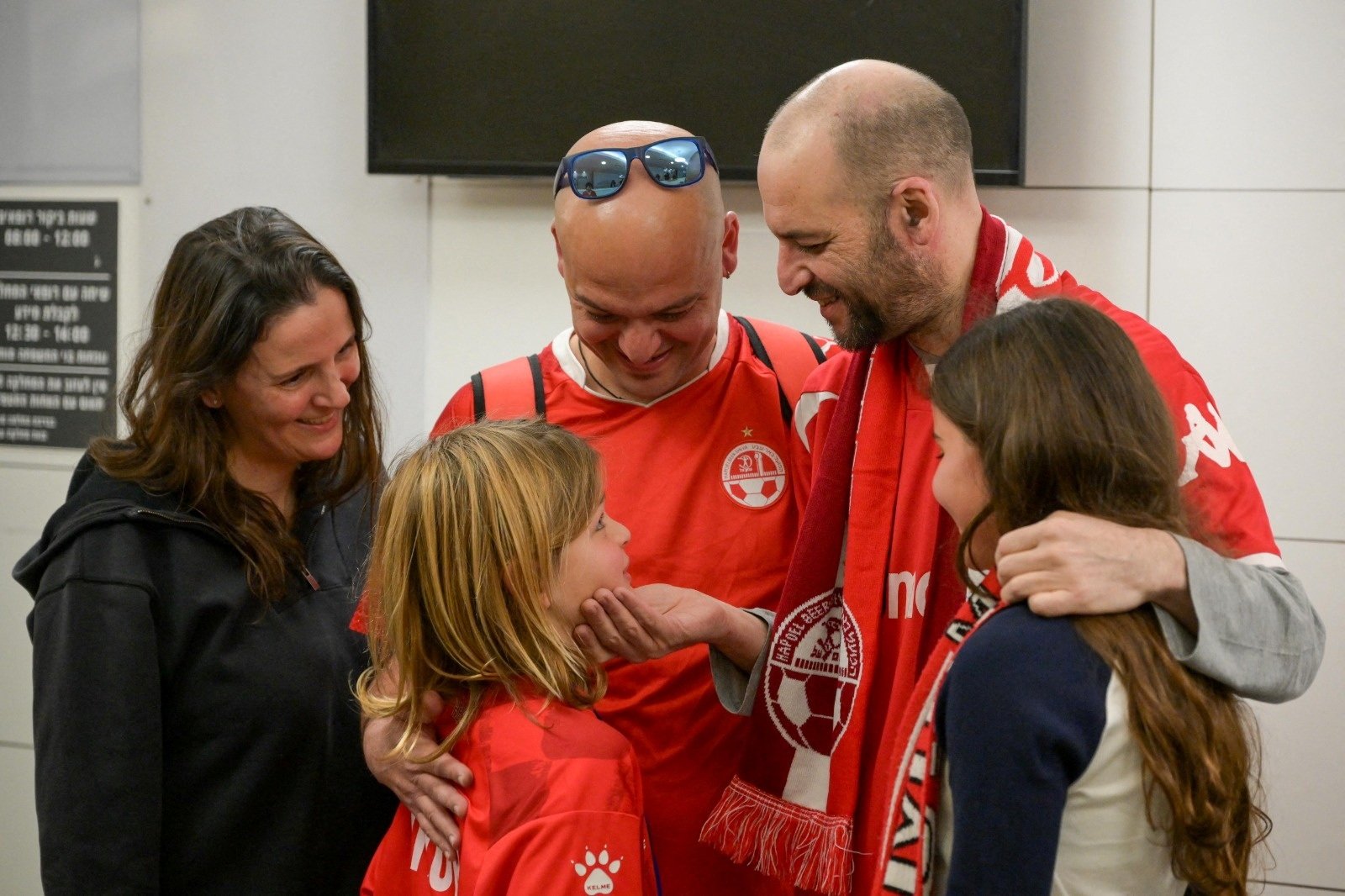© Turkuvaz Haberleşme ve Yayıncılık 2026
Hamas released three Israeli hostages in Gaza on Saturday, while Israel freed 369 Palestinian prisoners and detainees in a negotiated exchange that helped prevent the collapse of the fragile cease-fire.
The three Israelis – Sagui Dekel-Chen, 36, Sasha Trupanov, 29 and Yair Horn, 46 – were led onto a stage with armed Palestinian resistance group Hamas members standing on each side of them at the site in Khan Younis, live footage showed, before they were taken back into Israel by Israeli forces.
Shortly afterward, buses carrying freed Palestinian prisoners and detainees departed Israel's Ofer jail in the Israeli-occupied West Bank. The first bus arrived in Ramallah to a cheering crowd, some waving Palestinian flags.
"We didn't expect to be freed, but God is great, God set us free," said Musa Nawarwa, 70, from the West Bank town of Bethlehem, who was serving two life terms for killings of Israeli soldiers in the West Bank.
Buses carrying some of the hundreds of Palestinian freed prisoners and detainees, some flashing victory signs as they hung from the windows, arrived later at the European Hospital in Khan Younis in the southern Gaza Strip.
Some of the Palestinians were serving long prison terms for involvement in attacks on Israelis during the second Palestinian uprising in 2000. Others were jailed for killing Israeli soldiers in the occupied West Bank.
Some, like Hassan Ewis, will be allowed to return to their homes. Others, such as his brother, are expected to be deported to Egypt.
Ewis' charge sheet in the Israeli Justice Ministry records include the planting of explosives and attempted murder and intentional homicide. He said prison conditions were difficult and Palestinians were deprived of sufficient food.
Some of the Israeli hostages who have returned since Jan. 19 have reported being deprived of food, held in tunnels for months and not seeing daylight, and being subjected to alleged physical and psychological abuse.
Some freed Palestinians are returning to an enclave they have not seen for years, before it was blasted into rubble by Israeli airstrikes and shelling in 15 months of war. But most were rounded up after the Hamas-led Oct. 7, 2023 incursion of southern Israel.
The cease-fire's second phase is meant to usher in negotiations to return the remaining living hostages among the 251 taken that day and complete an Israeli military withdrawal before a final end to the war and the reconstruction of Gaza.
Netanyahu thanked U.S. President Donald Trump for putting pressure on Hamas, which he said led to the release of the three hostages and said he would convene a cabinet meeting to discuss next steps, the Israeli prime minister's office said in a statement.
The swap of the three Israelis for the 369 Palestinians allayed growing alarm that the cease-fire agreement could unravel before the end of the 42-day first stage of the truce pact in effect since Jan. 19.

In what has become known as Hostage Square in Tel Aviv, people broke into cheers and tears after hearing the Red Cross was on its way to deliver the three to Israeli military forces.
On the handover stage in Khan Younis, the hostages were made to give short statements in Hebrew and militants presented Horn with an hourglass and photo of another Israeli hostage still in Gaza and his mother, reading "time is running out (for the hostages still in Gaza)."
Nineteen Israeli and five Thai hostages have been released so far, with 73 still in captivity, around half of whom have been declared dead in absentia by Israeli authorities.
Prospects for the cease-fire surviving have been shaken by Trump's call for Palestinians to be resettled permanently out of Gaza, and for the tiny enclave to be turned over to the U.S. to be redeveloped as a seaside resort.
That idea has been rejected out of hand by Palestinian groups, Arab states and Western allies of Washington.
